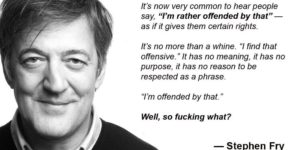Career Confessions from GenZ is a weekly series authored by Cameron Sackett, a Sophomore at the Univesity of Michigan majoring in Communications and Advertising. Make sure you connect with him on LinkedIn:
One of the things that my generation is most notorious for is our cell phone usage. According to The Washington Post, current teens are spending over 1/3 of the day on their phones. Now, I’m going to be upfront and say that I’m an avid phone and social media user, and I understand the potential dangers of spending too much time on your phone. On the other hand, I don’t foresee my cell phone usage habits or my generation’s changing significantly any time soon.
Due to this, companies are looking at changing how they recruit their candidates. As I am just dipping my toes into the workforce, I am starting to see how the interview process may be changing in the age of cell phones.
The majority of my communication with potential employers for all jobs that I’ve had has been e-mail. This is something that I’m all about. E-mail is like a more formal version of a text, where you don’t have the pressures to respond immediately and you can spend time thinking of a more formulated response.
Personally, I think that e-mail should stay as the main form of communication for communicating with candidates. I’ve heard that some companies are trying to implement texting or text messaging like platforms into their hiring process. Here’s the way I see it: when I text someone, I’m usually typing in an informal way and I typically respond ASAP. Also, a lot of errors occur in texting, like typos or texting the wrong person. These are easily fixed when you’re talking with your friends but not necessarily a potential employer.
I’m totally open to texting in the interview process, but I have my concerns.
Now when it comes to the more direct form of communication, let me dispel a common myth about Gen-Z: we don’t hate talking on the phone, we hate calling people on the phone. There is a HUGE difference between answering a phone call and calling someone and personally, I would much rather answer the phone than call someone. In addition, I think most of my generation does better in a face-to-face style of an interview because it allows for more of a personal connection. This may scare many people, but when a relaxed environment is created in an interview, I think that many of us would come to prefer in-person interviews.
Lastly, I don’t want to see recruiters messaging me on Twitter, Instagram, Facebook, Snapchat or any other social media platform. This isn’t because my social media profiles are inappropriate, thankfully I have some monitors on my profiles to keep them nice and clean (I see you Mom and Dad), but it’s because I see social media as a place that I can use for fun and enjoyment. I don’t want to have to constantly worry about messaging potential employers back on these platforms when I just want to use them to share/follow people and things I like.
Now, I am on the older side of Gen-Z (my 14-year-old brother is in Gen-Z too, how crazy!), so my opinions might not hold for the kids currently in middle and high school. I can say this: I (and most other college students) check our emails just about as much as you do, so that’s a good place to start!
_________________________________________________________________________________
HR and TA Pros – have a question you would like to ask directly to a GenZ? Ask us in the comments and I’ll have Cameron respond in an upcoming blog post right here on the project. Have some feedback for Cameron? Again, please share in the comments and/or connect with him on LinkedIn.
Besides being a Dad with a network, I thought the best way to get my son some ‘real-world’ experience would be to put himself out there as a writer! Let him know what you think and let us hear what you would like to learn about the next big generation entering our workforce!

